“When do you take creatine?” “How much creatine do you take?” “Is creatine a steroid?”
Questions circle around the newbie’s mind like angry hornets circling around a bear that unwittingly bumped into their nest—and who can blame him?
Upon getting into the world of bodybuilding, naive newbies are bombarded with offers from everyone and his uncle:
- “Buy this supplement! It’ll pump you up!”
- “Buy this pre-workout! It’s like bath salts!”
- “No, no, no—what you want is this GNC mega-super-ultra-man complex, bro.”
It’s hard to know what’s truth and what’s bullshit in the fitness industry, so today I’m going to cover something that EVERYONE should know about: creatine.
What is Creatine?

First off, creatine is one of the best muscle building supplements out there. I’ve seen the results it can give you, and they’re absolutely incredible.
But, what is creatine in the first place? Well, it’s a compound naturally found in your muscle cells—it’s a completely natural compound.
Your body actually produces creatine, but the reason we supplement with it, is because sometimes, having more of it can be a good thing.
Creatine helps your muscles create explosive energy during periods of intense interval training, and it’s been linked to a ton of physical performance benefits.
With this in mind, it’s obviously a popular supplement that pretty much every single pro-athlete and bodybuilder consumes.
In fact, I’d say that creatine is the most widely consumed workout supplement, right behind whey protein and pre workouts.
Multiple factors affect your body’s creatine stores, including consumption of red meat, frequency of exercise, weight, and testosterone levels. Overall, however, your body doesn’t produce or contain that much creatine.
This is why bodybuilders often supplement with the stuff—the most common dose taken is 5 grams a day, with some form of simple carbohydrates (more on this later).
While nobody can say for sure, not that much creatine exists in your body. In fact, you probably have less than one gram of creatine in your muscles right now (unless you supplement with it).
So when you supplement creatine, you’re basically increasing your body’s stores by like 5 fold. This leads to huge strength increases.
Now, do you see why so many supplement with creatine? Obviously the impact isn’t linear, so you’re not going to just get 5x stronger because you have 5x more creatine, but the impact is still incredibly powerful.
How Does Creatine Work?

When you supplement with creatine, it gets stored in your muscles as phosphocreatine—this is a form of stored energy, that can be utilized during periods of intense physical exertion (like sprints or weightlifting).
Creatine also helps your body produce more ATP, which is basically the body’s energy currency. More ATP means better performance overall, whether you’re doing sprints or lifting heavy ass weights.
In fact, here’s a full list of creatine benefits:
- Reduce muscle wasting
- Increase muscle hydration
- Raise IGF-1, a hormone linked to muscle growth
- Boost testosterone levels
- Increase strength
- Improve muscle repair processes
- Enhance explosive energy output
What this translates to, is that taking creatine will make you stronger, bigger, and faster. But are there any side effects?
Well, in my opinion, the side effects are minimal, and almost non-existent. The only real side effect of taking creatine is that you’ll need to drink more water, but that’s just because when you take creatine it draws water to your muscles, which hydrates them.
So I wouldn’t even call this a side effect, because it’s actually beneficial. Plenty of legal supplements like prohormones have WAY worse side effects than creatine.
Most of the research states that there’s no negative consequences of taking creatine, in either the short term, or the long term.
The argument that people propose is that your kidneys have to store excess creatine, so it’s bad for them, but your kidneys only hold about 5% of the creatine in your body.
Your muscles hold a whopping 95% of it, so to say that supplementing with creatine is bad for your kidneys is kind of ridiculous.
When to Take Creatine
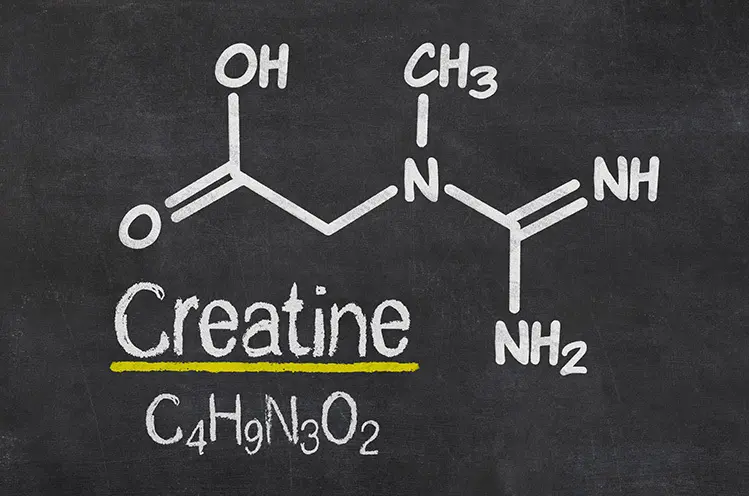
Most people who supplement with creatine just put a teaspoon in a glass of water, stir it around, and pound it down. Unfortunately for them, this isn’t enough to adequately absorb the creatine.
See, when you take creatine, it’s ideal to take it with simple carbohydrates—things like fruit, white rice, or white potatoes. Consuming these create an insulin spike, which allows for the creatine to enter into muscle cells easier.
In addition to this, the best times to take creatine are right before and right after a workout. Here’s how I personally take creatine:
- Before workout: 3 grams with one of my best pre workouts
- After workout: 3-5 grams with a protein shake, 4-5 dried pineapple rings, and 7 rice cakes
It’s ideal to take creatine before and after a workout, for maximum utilization. What’s most important, however, is consuming it after your workout with simple carbohydrates.
Don’t worry so much about time of day or anything like that. It doesn’t really matter what time of the day you take creatine.
What DOES matter, however, is that you take creatine right after a workout, with a shit ton of carbs. If you’re trying to bulk up, for example taking creatine with Mutant Mass would be a great way to do this.
My Creatine Results

Creatine was one of the first supplements that I got on, which actually worked… and it worked, like, REALLY well.
Yes, I did in fact waste a ton of money on bullshit supplements like GNC’s whey protein, but creatine was one of the few that actually worked for me.
I don’t remember exactly when I started taking creatine, but all I remember is that it was fucking effective. Every single one of my lifts went up a significant amount within just a matter of weeks.
My bench went up, my squats went up, my deadlift went up…creatine had an incredible impact on my strength, and it was very easy to see this.
Coincidentally, this is why some people think creatine is similar to SARMs, or even steroids. This is 100% retarded, and 100% not true.
Creatine is not a steroid, prohormone, or SARM. It’s an amino acid—but some people are convinced that it’s a steroid because it’s just so effective.
Regardless, when you take creatine you can expect to have a huge jump in your strength as well as your explosive energy.
The benefits don’t end there, however. Creatine is also a powerful nootropic, and has even been shown to improve cognitive function, as well as reduce the risk of Alzheimer’s disease.
In short, take creatine. I recommend that you take 3-5 grams a day, with a simple carbohydrate in order to maximize absorption.
I personally take more like 10 grams of creatine per day, but that’s because I workout so much. Most beginners only need 3-5 grams to see results.
Best Creatine Brand
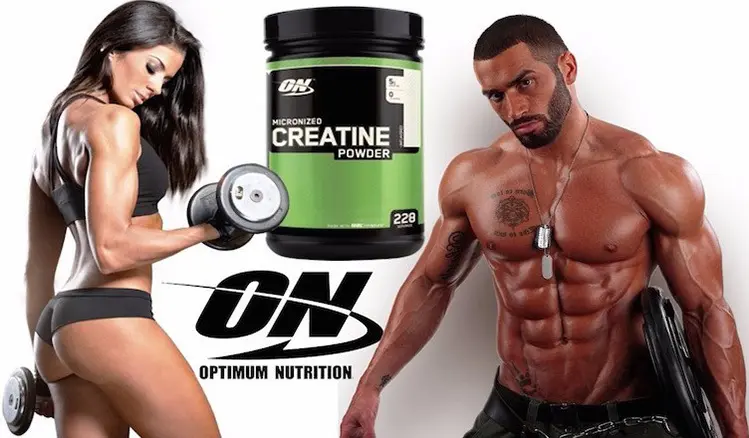
First things first, DO NOT buy pills! They’re not really a “scam” per say, but they will cost you WAY more than just buying powdered creatine.
This is true with creatine, and it’s true with almost all supplements—when you buy the powder form, you get it for like 10% the cost of pills.
That’s why I recommend Optimum Nutrition’s micronized creatine monohydrate. It’s dirt cheap—a one year’s supply is literally like $35.
In addition to this, there’s no fillers, gimmicks, or junk. It’s just 100% pure creatine monohydrate, AND it’s even micronized.
What this means is that the particles have been split into smaller particles, so that it’s easier for your body to absorb.
“But Jon, how do I measure powder? Do I need a scale or something?” Good question, and no you don’t. For creatine the rule is that one teaspoon is 5 grams of creatine.
So, all I do is just put around 2/3 of a teaspoon in my pre-workout and 1 teaspoon in my protein shake. Consume the pre-workout at home while watching a motivational video, take the whey protein shake to the gym with you, and consume it afterwards.
It’s that simple. Don’t bother with any of this bullshit creatine that’s like $30 for a 1 month supply—it’s a complete and utter ripoff. You don’t need to cycle creatine monohydrate, either. With other forms of creatine it may be a good idea, but the creatine I recommend can be taken year-round.
Creatine: The Bottom Line

In summary, take creatine. It’s one of the easiest ways to go from skinny to buff, and increase your performance in the gym. There’s a number of benefits to taking creatine, from increased testosterone and IGF-1, to less muscle-wasting.
Don’t buy pill forms, because they’re a ripoff. Always have creatine with a sugary, simple carbohydrate meal. Take it every day. If you’re under 18, you can ask your doctor, but I started taking creatine when I was 16 and I’m healthy as a horse.
I only recommend Optimum Nutrition’s powder form, because all you need is a teaspoon after your workout. If you’re an animal and lift weights 5+ times a week with intensity, consider taking some before your workout, too.
If you guys have any questions, comments, or concerns, feel free to let me know. And, as always, I’ll see you next time.

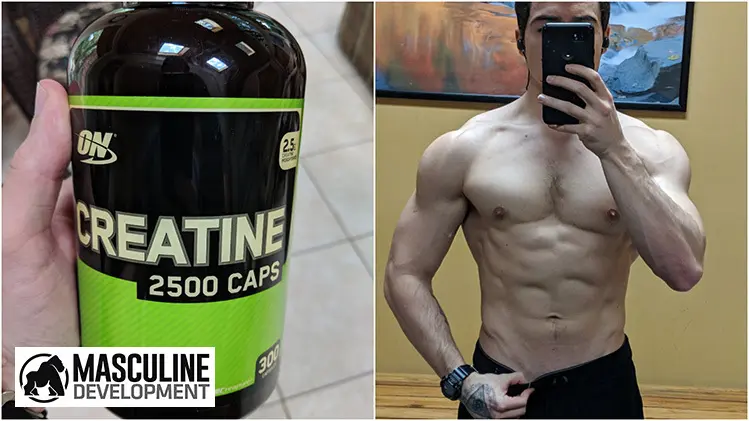



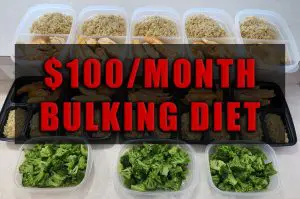






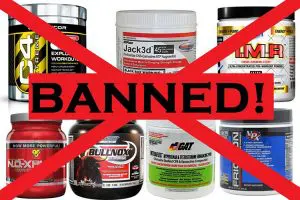
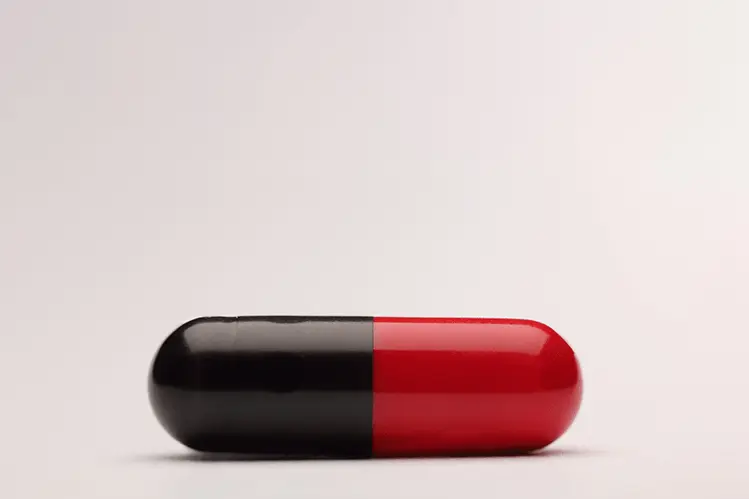
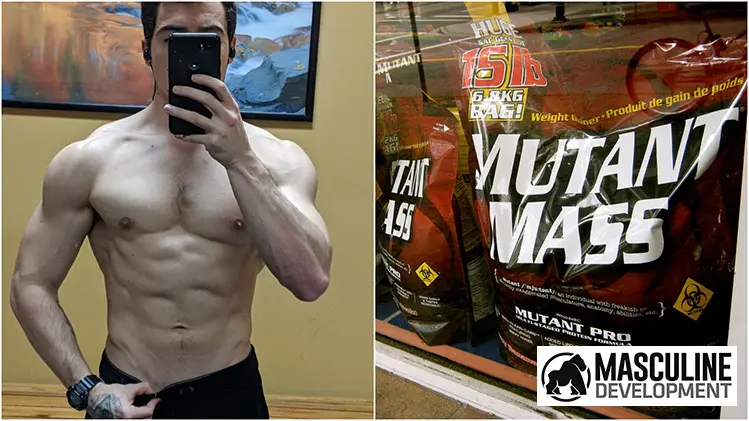


Thanks Harsh for republishing this articles
Great article 🙂